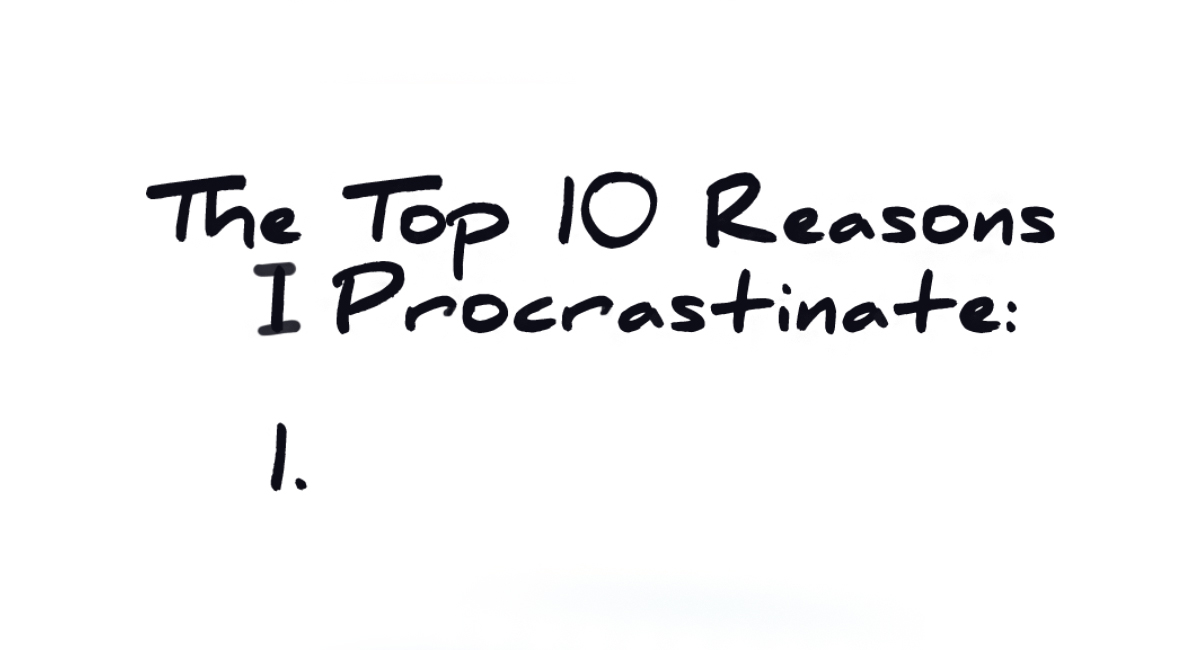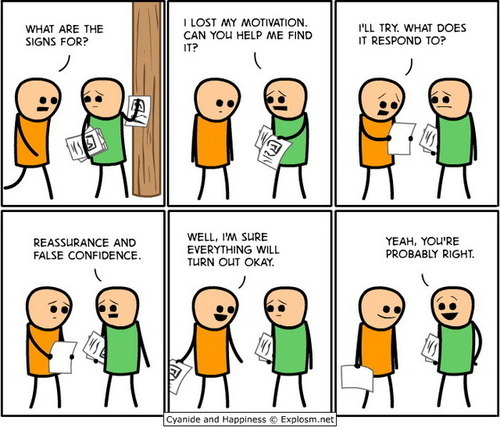
Are you procrastinating? Is there an essay or a blog post you just can’t seem to get done? We could suggest:
Don’t put off until tomorrow what can be done today.
Though, it won’t likely help.
Why not? Professionals, students, educators, writers, and so on have all heard this advice, and we all feel compelled to follow it, but—let’s be frank—it’s not easy to just “stop procrastinating.” We don’t procrastinate for the sake of procrastination or laziness. There are emotional and psychological barriers that manifest behaviorally as “procrastination,” and it’s important to understand these before trying to learn how not to procrastinate.

What Is Procrastination?
Though we all have experience with putting things off, that doesn’t mean we necessarily understand it. Simply:
Procrastination is a state in which one is delaying work on or completion of a task or project.
It’s important to note, however, that there is good procrastination and bad procrastination. Good procrastination helps you get more done while bad procrastination just makes you miserable with little to show for it. It is possible to procrastinate the right way and reap the benefits. Let’s assume, however, that you want to avoid the bad kind of procrastination (who doesn’t?). Here’s how.
Why Do People Procrastinate?
It may be useful for you to think for a few minutes about why you are postponing a given task. Often, the cause of your procrastination differs according to the task. What are the top reasons for procrastination? Generally, they are:
- feeling overwhelmed
- confusion
- boredom
- lack of motivation
- distraction
When writing, for example, procrastination normally comes from confusion or feeling overwhelmed. When I have to do the dishes, it comes from boredom. It’s important to understand the enemy before it can be defeated. Isolate the root(s) of your procrastination.
We’ll address methods of dealing with confusion, feeling overwhelmed, being bored, lacking motivation, and being distracted.
Ways to Stop Procrastinating
While it does take time to plan and organize for productivity, it will pay for itself over the life of your project or goal. Avoid procrastination with these eight tips.
Coping with Confusing and Overwhelming Tasks
1 Make Written To-Do Lists
To-do lists are a tried-and-true way of getting your bearings and keeping yourself from getting overwhelmed. They also help you organize your thoughts and can prevent confusion. It’s ideal to make a new list at the end of each day to prepare for the next day. Keep in mind, however, this tip won’t help much if you over-plan or set actionable tasks that cannot be completed in less than half an hour. If a task takes longer than thirty minutes, break it up into smaller tasks.
2 Start Each List (and Day) With One Important Task
Uncertainty about how to manage all the steps of a larger task can feel overwhelming. The antidote? Organization and proactivity. Accomplishing something toward your goal is a great way to empower yourself to take on the next step or to free up your energies for other tasks throughout the day. Choose one task or group of tasks each day that you should complete in order to feel productive. Do these tasks first.
3 Seek Information and Support
When we are overwhelmed or confused by how to move forward with a task, it can come from feeling inadequately prepared for taking on the task. If this is true for you, work in some time (and tasks on your list) for seeking guidance. For example, if you are confused about an essay or writing task for school, a good place to seek guidance is from your professor, your adviser, or a writing center tutor.
How do you cope with confusing and overwhelming tasks?

Coping with Boredom, Lack of Motivation, and Distraction
These particular causes of procrastination are common among students writing for a mandatory course or among professionals obliged to complete reports and documents regarding the mundane aspects of their work. This is especially true when the project isn’t something you have chosen for yourself. Luckily, not only are there great ways to get motivated, but there are also some helpful ways to avoid procrastination.
4 Establish a Purpose
It is difficult to pick a route if you haven’t yet determined a destination. Many people are not creative when thinking about their “destination.” More often than not, if your sole reason for doing something is simply to finish it, you will succeed, but miserably. Remember those midnight sessions writing drafts of your dissertation, hours before it was due? Yes, the drafts were completed, but under great stress. Wanting to finish a task isn’t enough to stave off procrastination. Purpose matters. Be creative with your goals. Try to establish a broader purpose that you are passionate about and fit the task at hand into your plan for progressing toward that goal.
5 Don’t Take On Too Much
This tip is also something that can help with feeling overwhelmed. Often, if you have taken on a huge task and have not allotted enough time to complete it in smaller bite-size chunks, the lack of progress can result in boredom. A huge task can also induce a sense of inferiority that leads to lack of motivation. To prevent stagnation, boredom, and sureness-sucking lack of motivation, work in small chunks over a longer period of time. The sense of accomplishment that will come from this habit will kill the dullness and incompetence you may have felt otherwise.
6 Break Up Unpleasant Tasks With Pleasant Ones
This may be seem obvious because it is so simple; however, many people are gluttons for punishment and continually create situations where they immerse themselves in unpleasant circumstances without taking ownership for their ability to improve their situation. If you are sick of doing something (inevitably, at some point or another, we all will be), take a productive break and do something refreshing. A short diversion is worth more than the time it costs. Rewards for achievements foster productivity. Incorporate these activities into your written lists during your organization process.
7 Create an Ideal Environment
Distractions arise when your environment is imperfect for your work. If distractions are a real issue for you and organizing your tasks does not relieve the impulse to procrastinate, it is vital that you take a look around and find out what is blocking your productivity. Distractions can range from background noise to a stiff chair, from a cluttered desk to Facebook. Do what you need to do in order to remove or avoid these elements. Many of us are distracted by the Internet. (“I’ll watch just one more cat video.” Yeah, right.) Develop the discipline to work in a space without Internet connectivity or build idle Internet browsing into your schedule (see tip three).
8 Stop Procrastinating and Just Start
Like jumping into a cold lake, the anticipation and initial dive into a project are the most difficult and unpleasant. Once you start, you acclimate and the process becomes tolerable, sometimes even enjoyable. Once you get over the first “hump,” accomplishment, inspiration and confidence have room to motivate your work.
These suggestions are aimed at addressing some of the primary sources of anxiety and discomfort that lead to dilatory habits. There are various tips and tricks for overcoming procrastination, which can vary greatly according to a person’s individual needs. While all of these tips may not fit your particular situation, starting at step one—determining the root of your procrastination—will give you all the direction you need for finding the ideal solution for you.
How do you avoid bad procrastination? Which of these strategies works well for you?





